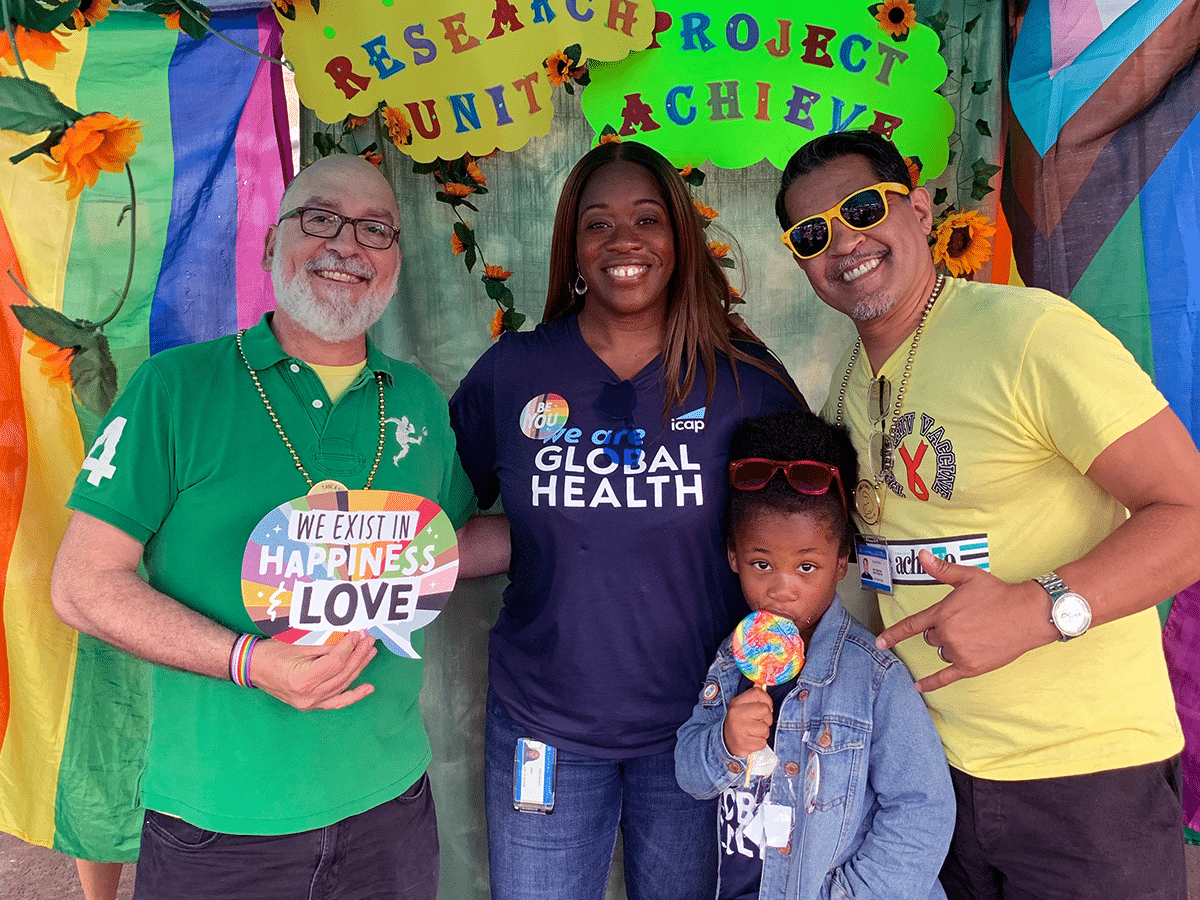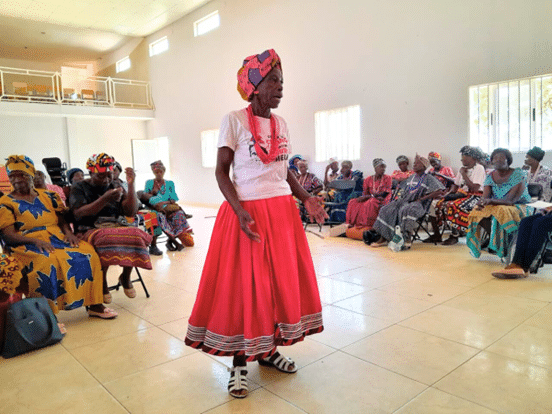At the Centre de Sante Urbain Zikisso, an ICAP-supported clinic in the rural town of Lakota, Cote d’Ivoire, a female patient receives HIV care and treatment services. Diagnosed with HIV four years earlier, the patient discontinued antiretroviral treatment believing she had been cured, and new to the area, she was reluctant to seek treatment once she became ill. Like many Ivoirians, several factors interrupted her care. HIV retention rates at health facilities in Cote d’Ivoire vary between 32 and 76 percent, well below the PEPFAR target. Her escort, Mr. Tagbo Gballo Felix, a community health worker (CHW), is part of ICAP’s effort to improve HIV treatment retention rates.
One key strategy to addressing this challenge is a team approach with physicians, nurses, midwives, social workers, and community health workers collaborating to support the diverse aspects of patient care. With funding from PEPFAR through HRSA, ICAP’s Global Nurse Capacity Building Program partnered with Cote d’Ivoire’s Ministry of Health (MOH) to implement the CHW model, supporting family-oriented care and community engagement and establishing a key link between communities and health facilities. The model builds on current strengths in Cote d’Ivoire, utilizing decentralized HIV care to include the government healthcare system in the response.
In June 2014, the ICAP Community Health Workers Approach Project was launched with over 100 community health workers at 12 health facilities across four districts—Fresco, Divo, Lakota and Abidjan—in Cote d’Ivoire. ICAP cultivated three new cadres of community health workers: basic CHWs, each trained to support 30 families in the community; peer educators who are HIV-positive and adhering to treatment; and coaches who in addition to basic responsibilities, lead small teams of CHWs. Trained in a range of topics from chronic disease prevention to HIVtesting and treatment adherence, community health workers organized education sessions and visited homes to engage families in discussion on topics such as HIV, tuberculosis and maternal and infant nutrition.
ICAP worked with the district and regional health directors to guide the selection of CHWs and trained 12 nurse supervisors to provide direct support to community health workers. In Lakota, a nursing supervisor helped Mr. Felix determine his intervention area in the village and organize community sessions. “I was already known by people in my community as a resource person to contact in case of illness and referred pregnant women and sick children to health centers for care,” said Mr. Felix. “I connected with the woman in Lakota when her younger brother invited me to their home to discuss his sister’s health,” said Mr. Felix. “Afterwards, I accompanied her to the health facility, she agreed to seek additional treatment, and four months later she was back on ART.”
Since the project’s launch, the community health workers have shown considerable success in raising awareness of HIV prevention, effectively following up with HIVpatients, reengaging them in care, and ensuring pregnant women receive regular antenatal care. HIV-positive, peer community health workers were exceptionally successful in their roles. By September, just four months after the project began, peer CHWs had conducted over 6,700 home visits, connected with over 1,400 families, and referred over 160 pregnant women for antenatal care. They also encouraged behavioral changes such as practicing safe sex and utilizing health facilities to give birth.
“The woman gained weight and her entire family is grateful,” said Mr. Felix. “Today, I can say that I am very proud to be a health volunteer.”







